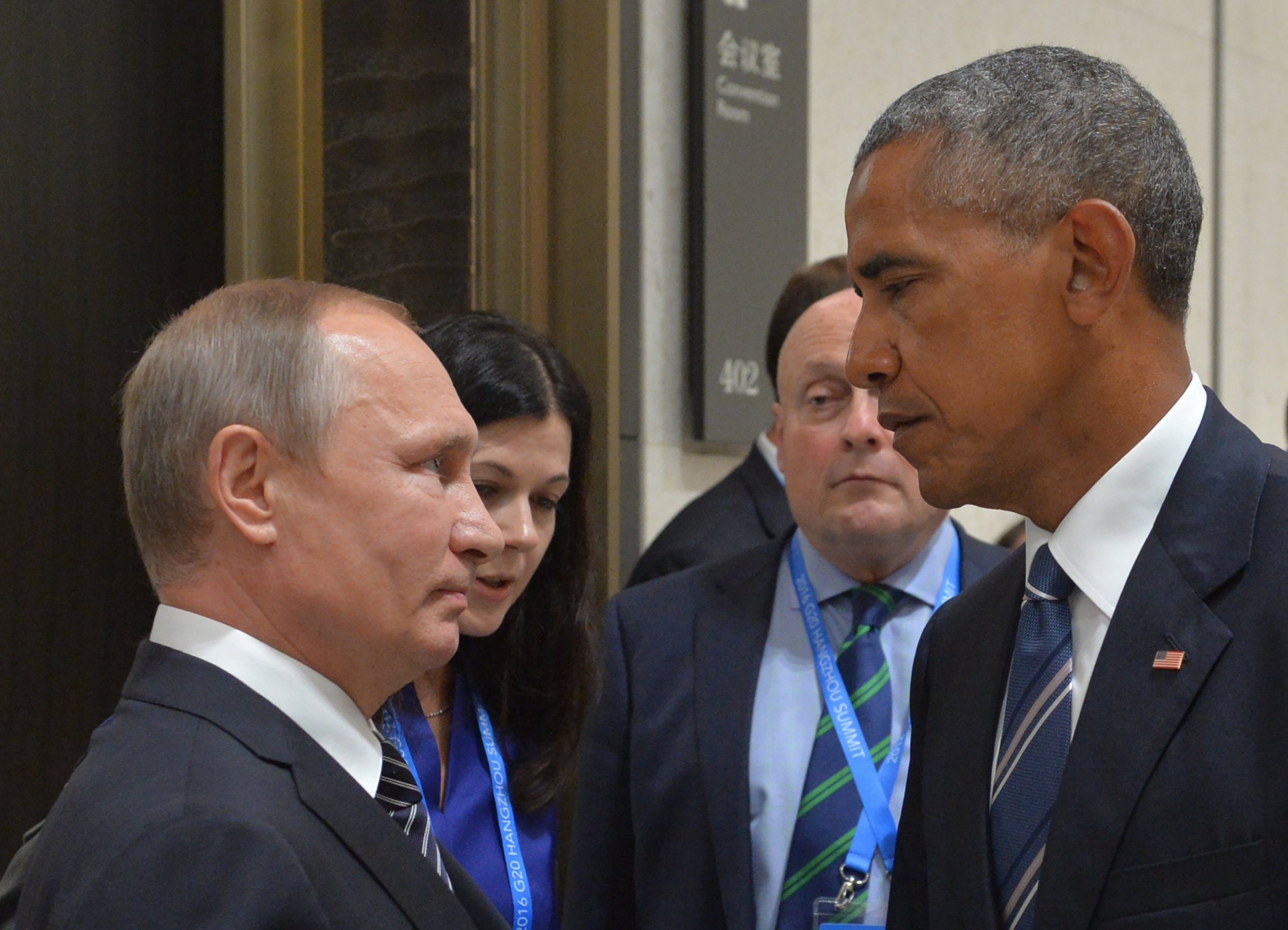
This year’s G20 summit, which ended on Sept. 5, saw leaders who represent around 85% of the world’s economy gather in China’s southeastern city of Hangzhou.
Here are some key moments from the two-day event over the Labor Day weekend that saw factories shuttered, building work suspended and local residents out of the city so that Chinese authorities could proceed without a glitch:
1. Red carpet fracas
A squabble over a mobile stairway caused President Barack Obama to disembark from the belly of Air Force One on a small flight of metal stairs, and not onto the red carpet normally provided to world leaders. The incident created the narrative that the Chinese had snubbed the American leader, which Chinese officials deny. There was also a disagreement on the tarmac when a Chinese official shouted “this is our country” to U.S. officials and reporters trying to cross a cordon. The situation was further exacerbated online, when U.S. spy unit Defense Intelligence Agency (DIA), tweeted “Classy as always China” with a link to a New York Times article on the airport incident.
2. U.S. and China give green light to green plan
The diplomatic feuding didn’t prevent leaders of the world’s two biggest greenhouse gas emitters— Obama and Chinese President Xi Jinping—from announcing that they will formally ratify the Paris climate change agreement. Obama said the announcement, made a day before the start of the summit on Sept. 3, showed that the world’s two largest economies could come together to battle climate change. The pair also enjoyed a cup of tea together at a heavily-staged photo op.
3. No Syria deal in sight between U.S. and Russia
Obama met with his Russian counterpart President Vladimir Putin on Sept. 5 on the sidelines of the G-20 summit for around ninety minutes. The pair were attempting to clarify gaps in negotiations over the Syrian crisis, because talks between their governments ended without an agreement over the weekend. The leaders also discussed Russia’s cyber intrusions and Ukraine, reports CNN.
4. Worries aired about populist-fueled discontent
With the backdrop of the U.K. voting to leave the E.U. and populist leaders such as Donald Trump preaching a protectionist gospel, world leaders were unanimous in their acknowledgment of rising income inequality and a growing backlash to globalization. At the conclusion of the summit Christine Lagarde, managing director of the International Monetary Fund, said: “Growth has been too low for too long for too few….there was also a determination around the room to better identify the benefits of trade in order to respond to the populist backlash against globalisation.”
5. No quick trade deals for the U.K.
Obama told U.K. Prime Minister Theresa May that a trade deal between both countries would not be a priority, reiterating his stance that “the world benefited enormously from the United Kingdom’s participation in the E.U.” Her team was then warned in a 15-page memo that Japanese companies could be driven out of Britain after Brexit if the country ceased being a “gateway to Europe.”
6. Kim Jong Un makes a splash
North Korea launched three ballistic missiles on Sept. 5, in a move seen as an attempt to capture the attention of world leaders as they attend the G-20 summit. The medium-range Rodong missiles flew for around 600 miles before landing in the Sea of Japan.
7. Philippines president crosses the line
On Sept. 5, Obama cancelled his planned meeting with Philippine President Rodrigo Duterte after the Filipino appeared to call him a “son of a whore.” Obama was due to meet Duterte at the ASEAN summit in Laos, which is taking place a day after the G-20 on Sept. 6. Duterte issued a statement on Tuesday saying he regretted his curse, blaming the slur on “certain press questions that elicited concern and distress.”
More Must-Reads from TIME
- Donald Trump Is TIME's 2024 Person of the Year
- Why We Chose Trump as Person of the Year
- Is Intermittent Fasting Good or Bad for You?
- The 100 Must-Read Books of 2024
- The 20 Best Christmas TV Episodes
- Column: If Optimism Feels Ridiculous Now, Try Hope
- The Future of Climate Action Is Trade Policy
- Merle Bombardieri Is Helping People Make the Baby Decision
Contact us at letters@time.com